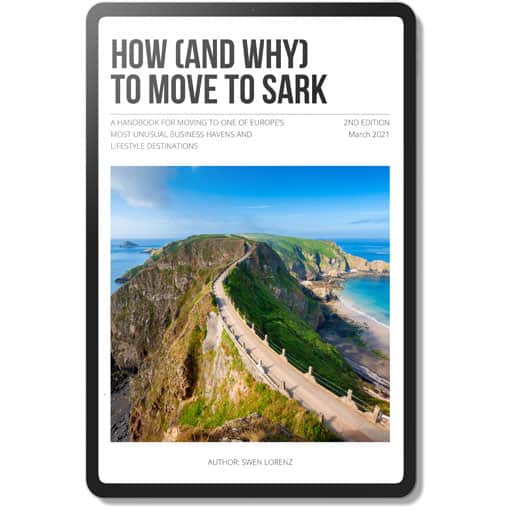In amidst fervent media reporting about the funding boom for start-ups, let’s take a look at a case that shows why NOT having much funding can be a good thing.
Enter Suzie Walker, Founder and CEO of The Primal Pantry, the company behind the UK’s first paleo energy bar.
If you haven’t come across it yet, these grain-free, 100% natural ingredients energy bars were launched in late-2013. They are now available in Waitrose, Sainsbury’s, Tesco Express, Holland & Barrett, Wholefoods, Planet Organic and Ocado as well as various independent stores, gyms, yoga studios and CrossFit Boxes. Out of nothing, Suzie has built an energy bar operation that spans Germany, Austria, France, Scandinavia, Spain, Italy, Benelux, South Africa, Slovakia, Portugal, Singapore, Hong Kong and the UAE.
She and her co-founder did it all with a paltry £16,000 ($21,000) in initial funding.
Here is what you can learn from her and how you can pull it off yourself.
Stretch the funding further
You might know Parkinson’s law, i.e. the adage that “Work expands so as to fill the time available for its completion.”
“Tightly funded companies will find a way to make it all work with less money.”
Over the years, I have come to realise that it’s not too dissimilar with funding. For that, the saying could be something like, “Generously funded companies will find a way how to spend all the money. It is also true for the polar opposite, i.e. tightly funded companies will find a way to make it all work with less money.”
Case in point, The Primal Pantry’s initial capital of just £16,000. “That was all we had”, Suzie told a dinner that I had the pleasure of attending.
She asked a design agency for a quote to design her branding and packaging. The initial quote came back at £4,000. “That was a quarter of what we had, so I couldn’t afford it.”
Suzie walked away from the offer, only for the design firm to come back to her and ask, “What can you afford?”
The agency subsequently agreed to do the same job for £500, on the condition that Suzie carried out fundraising to make sure subsequent jobs for the agency could be paid at a higher rate. “They entered several awards with our branding and now just a tweak is £5,000”, Suzie added. She got an initial 88% saving and preserved precious liquidity for use elsewhere in the business.
Talk about cutting a deal!
Had she had more generous funding, would she have negotiated as hard?
There you go.
Revenue is your cheapest source of capital
If you launch a retailer, the easy and obvious route is to negotiate with large retailers to stock your product.
But again, the easy and obvious way may not be the best one for you financially.
Before the company had even ordered the actual production of the product, Suzie had pre-sold 20,000 energy bars.
Suzie tells the story how she approached Holland & Barrett, the UK’s major health products retailer. As she put it, they asked for £11,000 of free stock, £25,000 in advertising in the retailer’s magazine, and a hefty 55% margin.
Since she couldn’t afford it, Suzie started a guerilla marketing campaign instead.
“I was literally talking to people on Facebook groups about our bars.” Along the way, Suzie made the surprising discovery that vegans were extremely interested in her product. Her bars are for paleo diet fans, but since the bars are also vegan, she picked up a huge following among that particular community.
Before the company had even ordered the actual production of the product, Suzie had pre-sold 20,000 energy bars.
Again, lack of capital made her resourceful. The revenue she earned from pre-orders put her onto a path to rapid growth.
Sadly, not everything that followed turned out to be such a wise decision.
A lesson learned the hard way
The Primal Pantry subsequently turned into a high-growth company, with Suzie appearing all over the national press and consumers vying to buy the energy bars.
During the business’s first year, the company even made a profit.
Strong revenue growth, huge PR and quickly reaching profitability opened up new funding avenues. At least in some ways, that wasn’t necessarily good for the business.
It appears that access to outside funding led to Suzie momentarily abandoning her laser-sharp focus.
Suzie and her team subsequently got offers to get into hundreds of stores. The rapid growth seemed tempting, and she took out a £200,000 loan.
Flush with funding, she agreed to an offer for 300 stores. Not all of which turned out to be suitable for selling her product in the right quantity.
“It’s easy to want more shops, but then your rate of sales drops.”
It appears that access to outside funding led to Suzie momentarily abandoning her laser-sharp focus.
“We never strategised enough and put it all into growth. We couldn’t say ‘No’ to an offer for 300 stores when we should have said we only wanted to be in 50, but the right ones!”
“We said ‘Yes’ to everything, and we wanted to grab as many opportunities as we could.”
“My recommendation is to slow down.”
Which, if cash is tight, you automatically do!
Lack of funding introduces a huge amount of discipline into an organisation.
Let Suzie be your inspiration
The loan has by now been repaid (“Phew!”), and The Primal Pantry is in many ways in a superb position.
Even the upcoming entering of the UK market by a US competitor could be good news for the company. If a paleo bar producer with huge marketing firepower starts educating the British consumer about these products, then most likely, this will rub off on The Primal Pantry, too. Suzie will have more competition but probably benefit from an overall larger market.
Suzie was kind enough to write up two pages of advice for fledgling retailers (PDF – 1MB), which everyone at the dinner table got a copy of to take home.
Valuable advice coming out of her story:
- You should simply get started!
- Don’t let a lack of capital be an obstacle to start in the first place.
- Don’t let fear hold you back. As Suzie put it, “We made £10,000 worth of bars. The biggest risk was we have to eat them ourselves.”
- Get the brand right. She told the story how her products only have four ingredients. Anyone could easily copy the actual energy bars. “It’s all about brand and design”, Suzie said.
What Suzie doesn’t seem to have cracked yet, is the tough nut of managing people. “The hardest thing I find is managing people; it’s not something I was trained in.”
The company now has 22 employees, and a board of 5 directors.
With their employees, “It’s our job to be parents again.”
Not that this would be a surprising realisation. It’s an experience I see (and hear about) at many companies. Which reminds me, I wanted to write an article about the difficult subject of managing small teams in fast-growing companies!
But in the meantime, I hope you found the insights from Suzie Walker’s experiences useful and inspiring. Her company is now in year 4 with £4m in revenue and sales in 34 countries.
Not bad for a company that had to make do with an initial £16,000!
To follow them, visit The Primal Pantry’s website or check them out on Facebook or Instagram.
A quick note about the source material for this particular article: If you live in London or visit frequently, you might want to check out the service provided by TableCrowd. They host dinners where a speaker is invited to elaborate about their experiences relating to fundraising, building a company, selling a company, etc. I am not affiliated with them, pay for my own dinner participation, and don’t get any commission for recommending them. But they do get my wholehearted recommendation for providing an insightful and quite affordable service to the London start-up scene. I get to meet people that otherwise, I would not have come across (including fellow diners). The source material for my blog is regularly based on those dinner talks.
If you enjoyed this, you might also find the following articles useful:
Want to print this article? Open a printer friendly version.
Did you find this article useful and enjoyable? If you want to read my next articles right when they come out, please sign up to my email list.
Share this post:


